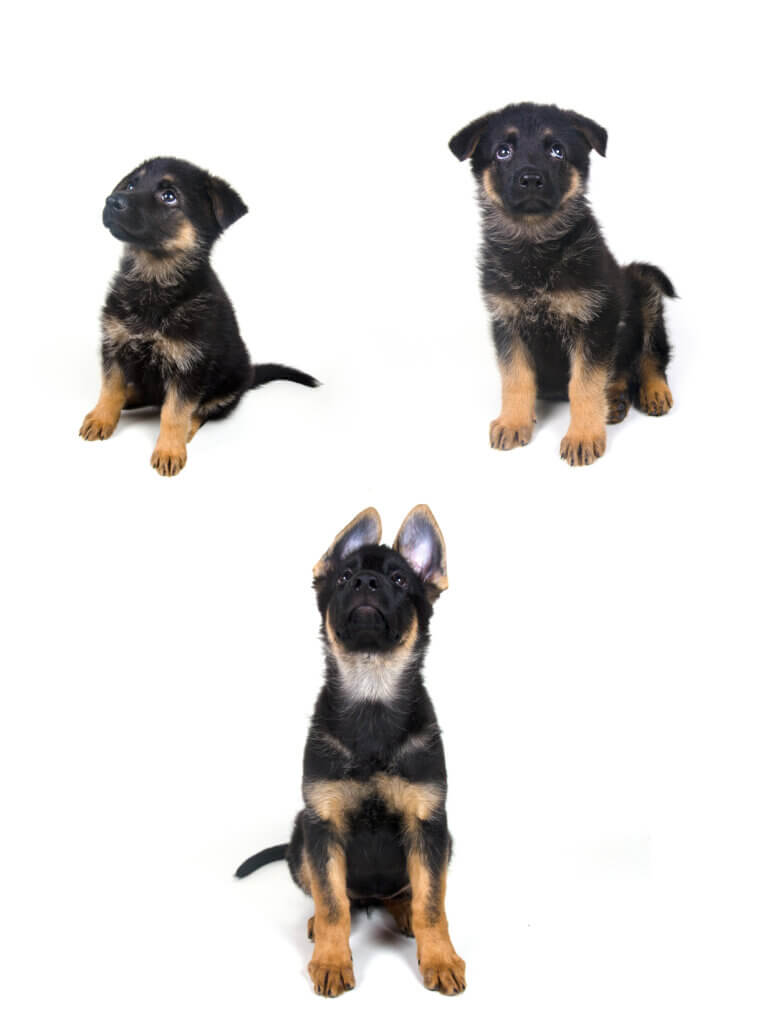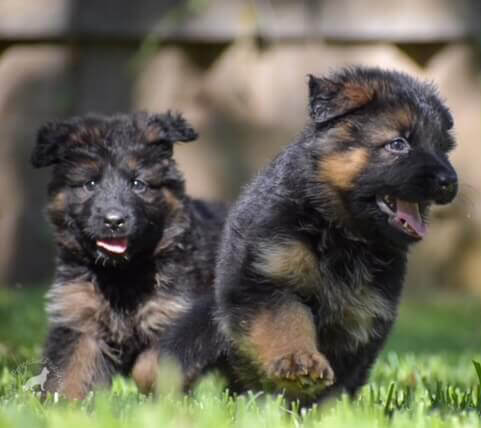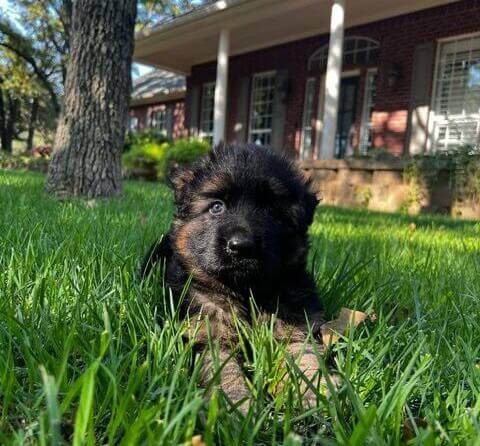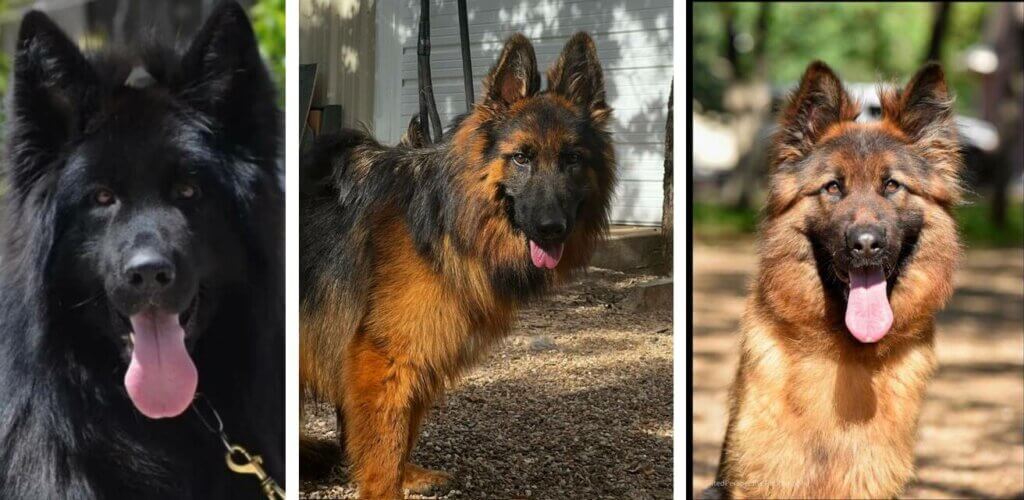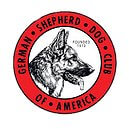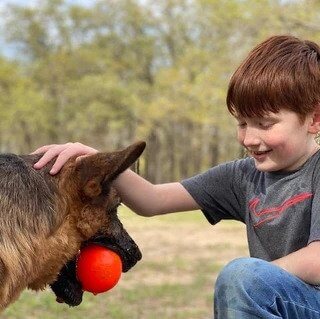
As a leading German Shepherd Dog breeder in Texas, one of the most common questions we receive at Kaiser German Shepherds is about how German Shepherds interact with children. Known for their loyalty, intelligence, and protective nature, German Shepherds can make excellent family dogs when properly trained and socialized. Let’s explore how to create and maintain safe, positive interactions between your German Shepherd and children.
Understanding Your German Shepherd's Natural Instincts
German Shepherd Dogs (GSDs) were originally bred as herding dogs, and this heritage influences their behavior around children. Their natural herding instincts might lead them to gently “herd” children by circling or nudging them. While this behavior comes from a protective instinct, it’s important to properly channel these tendencies through proper training.
At Kaiser German Shepherds, we carefully select our breeding pairs for stable temperaments, ensuring our puppies have the genetic foundation to become excellent family companions. Our breeding standards prioritize temperament alongside physical characteristics, resulting in German Shepherds that are naturally good with children.
Early Socialization: The Foundation of Success
The key to raising a child-friendly German Shepherd starts with early socialization. Puppies from our breeding program are exposed to various stimuli, including different sounds, textures, and gentle handling, from an early age. This early exposure helps create well-adjusted dogs that are more likely to interact appropriately with children.
When bringing your German Shepherd puppy home, continue this socialization by gradually introducing them to children of different ages under controlled circumstances. Remember that socialization should be a positive experience for both the puppy and the children involved.
Teaching Children How to Interact with German Shepherds
While German Shepherds are typically patient with children, it’s crucial to teach children how to properly interact with dogs. Here are essential guidelines we share with all our family clients:
Respect the Dog’s Space
Teach children that every dog, including German Shepherds, needs their own space. This includes their bed, crate, and feeding area. Children should learn to recognize when a dog wants to be left alone and respect these boundaries.
Gentle Interactions
Show children how to pet German Shepherds gently, avoiding rough handling or pulling on ears, tail, or fur. Explain that while German Shepherds are strong and resilient, they have feelings and can be hurt by rough treatment.
Reading Body Language
Help children understand basic dog body language. A German Shepherd showing signs of stress, such as turning away, licking lips, or showing the whites of their eyes, is communicating that they need space. Teaching children to recognize these signals helps prevent potential incidents.
Supervised Interactions: A Must for Safety
At Kaiser German Shepherds, we emphasize that all interactions between German Shepherds and young children should be supervised, regardless of how well-trained or gentle the dog may be. This supervision helps ensure both the child’s safety and the dog’s comfort level.
Our training program includes specific guidance on managing interactions between German Shepherds and children. We teach owners how to recognize signs of stress or discomfort in their dogs and how to intervene appropriately when needed.
Creating Positive Associations
One of the most effective ways to ensure your German Shepherd develops a positive relationship with children is through positive association. Encourage children to participate in appropriate activities with the dog, such as:
- Structured training sessions where children can help with basic commands
- Gentle play sessions with appropriate toys
- Calm walking exercises where older children can help handle the leash under supervision
- Reward-based training where children can help give treats for good behavior
Exercise and Energy Management
A well-exercised German Shepherd is more likely to have controlled, appropriate interactions with children. German Shepherds are high-energy dogs that require regular physical activity and mental stimulation. When these needs are met, they’re typically calmer and more patient in their interactions with family members, including children.
Our education resources provide detailed guidance on exercise requirements and energy management for German Shepherds of all ages. We help families develop appropriate exercise routines that can include child participation when appropriate.
Setting Up Safe Spaces
Every home with both children and German Shepherds should have designated safe spaces. This includes:
- A quiet retreat area for the dog where children know not to disturb them
- Child-free zones where the dog can eat and rest undisturbed
- Supervised play areas where interactions can be safely monitored
- Gates or barriers to separate spaces when needed
Managing Special Situations
New Babies
For families expecting a baby, we provide specific guidance on preparing your German Shepherd for the new arrival. This includes:
- Gradually introducing baby-related sounds and equipment
- Establishing new routines before the baby arrives
- Creating positive associations with baby-related activities
- Setting up safe boundaries and management systems
Toddlers and Mobile Babies
As babies become mobile, supervision becomes even more critical. German Shepherds typically have excellent impulse control, but it’s important to manage interactions carefully during this stage. We recommend:
- Never leaving toddlers alone with any dog, regardless of breed
- Teaching “gentle” touch to both the child and the dog
- Maintaining the dog’s training and establishing clear boundaries
- Providing the dog with adequate exercise and mental stimulation
The Kaiser German Shepherd Difference
At Kaiser German Shepherds, we understand that bringing a German Shepherd into a family with children is a significant decision. That’s why we:
- Carefully select our breeding pairs for stable temperaments
- Provide ongoing support and education to our puppy families
- Offer training resources specific to families with children
- Maintain communication with our families to ensure successful integration
Long-term Success
Creating positive interactions between German Shepherds and children is an ongoing process that requires consistency, patience, and commitment. With proper training, socialization, and management, German Shepherds can become wonderful companions for children of all ages.
Remember that every dog is an individual, and while German Shepherds are generally excellent with children, it’s essential to work with your specific dog’s personality and comfort level. Our team at Kaiser German Shepherds is always available to provide guidance and support throughout your journey.
Getting Started with Your German Shepherd Journey
If you’re considering adding a German Shepherd to your family with children, we invite you to contact us to discuss your specific situation. We can help you understand what to expect and how to prepare for success with your new family member.
Visit our puppy waiting list to learn more about our upcoming litters and how we can help you find the perfect German Shepherd for your family. With proper preparation, training, and ongoing support, your German Shepherd can become a beloved and trusted companion for your children.
Remember, the key to successful interactions between German Shepherds and children lies in education, preparation, and ongoing management. With the right approach, you can create a safe and loving environment where both your children and your German Shepherd can thrive together.

